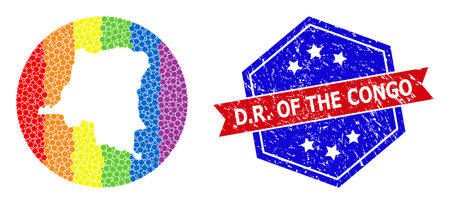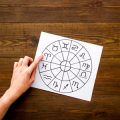Introduction to Rashi and Zodiac Compatibility in Indian Culture
In India, astrology is not just a belief—it’s a profound cultural tradition that shapes important life decisions, especially in the realm of love and marriage. One of the central concepts in Indian astrology is the “Rashi,” or Moon Sign, which differs from the popular Sun Sign system often seen in Western horoscopes. The Rashi is determined by the position of the moon at the time of an individuals birth, and it is believed to reveal deep insights into one’s personality, emotional nature, and destiny. Understanding Rashi compatibility, also known as zodiac compatibility, is a vital part of assessing long-term harmony between partners in Indian marriages. For countless families across India—from North to South and East to West—matching Rashis is a respected practice that guides matrimonial choices and relationship advice. This compatibility analysis helps predict whether two individuals will share mutual understanding, happiness, and stability in their married life. The significance of Rashi extends beyond personal preference; it is woven into rituals, traditions, and even modern matchmaking platforms. For many Indians, consulting an astrologer for Rashi matching remains an essential first step before saying “I do.” As such, exploring which Rashis make the best match can unlock not only astrological wisdom but also timeless guidance for love and relationships in Indian culture.
2. How Rashi Compatibility is Calculated: The Basics of Kundli Matching
In India, zodiac love compatibility is deeply rooted in the practice of Kundli matching, also known as Horoscope matching. It is a traditional and essential step before marriage, especially in Hindu culture, where families consult astrologers to ensure that the prospective bride and groom are compatible on multiple levels. This process involves analyzing the Rashi (zodiac sign) and Nakshatra (lunar constellation) of both individuals. Below, we explain the most important aspects of Kundli matching used across India.
Kundli Milan and Gun Milan System
The core of compatibility analysis lies in Kundli Milan, which refers to the comparison of two birth charts. The most popular system is Gun Milan, where ‘Gun’ means qualities or points. A total of 36 Gunas are considered, and a minimum score of 18 is generally regarded as acceptable for marriage.
| Guna (Aspect) | Description | Maximum Points |
|---|---|---|
| Varna | Spiritual compatibility between partners | 1 |
| Vashya | Mutual attraction and control in relationship | 2 |
| Tara | Health and well-being compatibility | 3 |
| Yoni | Sexual compatibility and mutual love | 4 |
| Graha Maitri | Mental compatibility and friendship | 5 |
| Gana | Natures and temperament match | 6 |
| Bhakoot | Love, prosperity, growth after marriage | 7 |
| Nadi | Genetic compatibility and health of progeny | 8 |
| Total Possible Score: | 36 Gunas | |
Main Aspects Influencing Rashi Compatibility: Ashtakoota & Manglik Dosha
Ashtakoota System Explained
The Ashtakoota system (‘ashta’ meaning eight) is the backbone of Gun Milan. Each Koota represents a specific aspect of married life and assigns points based on how well the Rashis align. The higher the combined score, the better the marital harmony predicted by astrologers.
Manglik Dosha: An Essential Indian Concern
Manglik Dosha (also called Kuja Dosha) occurs when Mars is placed in certain positions in one’s horoscope. It is believed to cause challenges in marital life if not matched properly. In Indian families, checking for Manglik Dosha is crucial as it can influence decisions about marriage timing or require remedies (pujas) if there is a mismatch between partners.
Cultural Significance in India
Kundli matching remains an integral part of Indian marriages across regions—from Punjab to Tamil Nadu—reflecting deep respect for astrological traditions. While some urban couples might view it as optional, many families still consider it essential for ensuring lifelong happiness and stability in relationships based on their Rashi compatibility.
![]()
3. Top Zodiac (Rashi) Pairings in Indian Matchmaking
In Indian matchmaking, the compatibility of Rashis (zodiac signs) plays a pivotal role in determining auspiciousness for love and marriage. Many families consult astrologers to ensure that the union of two individuals is supported by their horoscopes, thereby increasing the likelihood of harmony and prosperity. Here are some of the most harmonious Rashi combinations often regarded as ideal in Indian society:
Mesha (Aries) & Simha (Leo)
This fiery pairing brings together two dynamic personalities. Both signs are ruled by powerful planets—Mars for Mesha and Sun for Simha. Their mutual energy, leadership qualities, and passion make them highly compatible, with each partner inspiring the other to grow.
Vrishabha (Taurus) & Kanya (Virgo)
Both earth signs, Vrishabha and Kanya, value stability, loyalty, and practicality. Their shared approach to life fosters understanding and comfort, making this duo one of the most sought-after matches for long-term marital bliss in traditional Indian communities.
Mithuna (Gemini) & Tula (Libra)
Air signs Mithuna and Tula connect effortlessly through communication and intellectual pursuits. Their sociable natures help them build a relationship based on mutual respect and shared interests. This match is often considered favorable for modern couples seeking balance between tradition and personal freedom.
Karka (Cancer) & Meena (Pisces)
The emotional depth of Karka blends beautifully with the empathetic nature of Meena. Both water signs, they nurture each other with sensitivity and care, creating a supportive environment that is especially valued in Indian joint family systems.
Makar (Capricorn) & Vrishchika (Scorpio)
This combination is known for its strength and determination. Makars discipline complements Vrishchikas intensity, allowing them to overcome obstacles together. Such pairs are often viewed as highly auspicious for building wealth and legacy within the family structure.
Conclusion
While individual compatibility depends on many factors beyond just Rashi, these pairings are traditionally highlighted in Indian astrology for their potential to foster loving, lasting relationships. Consulting an astrologer remains a common practice during arranged marriages, ensuring that both partners embark on their journey with celestial blessings.
4. Challenging Rashi Pairings: Navigating Differences
While some Rashi pairings flow harmoniously, others may face obstacles that require extra patience and mutual adaptation. In Indian culture, where marriage is seen as a union of two families and traditions, understanding these challenging zodiac combinations becomes crucial for long-term happiness. Here, we discuss pairs that often present more challenges and suggest ways Indian couples can navigate these differences with cultural sensitivity.
| Challenging Rashi Pairing | Common Issues | Cultural Advice for Indian Couples |
|---|---|---|
| Mesha (Aries) & Karka (Cancer) | Clash of independence vs. emotional security; frequent misunderstandings. | Engage in open conversations during family gatherings; consider seeking elders’ guidance to bridge emotional gaps. |
| Mithuna (Gemini) & Vrishchika (Scorpio) | Intellectual vs. emotional depth; trust issues may arise. | Participate in joint pujas or temple visits to foster emotional bonding and trust through spiritual practice. |
| Kanya (Virgo) & Dhanu (Sagittarius) | Practicality vs. adventurous spirit; conflicting life priorities. | Balance practical planning with spontaneous trips—especially during festivals like Diwali or Holi—to accommodate both personalities. |
| Tula (Libra) & Makara (Capricorn) | Social nature vs. reserved personality; difference in handling family responsibilities. | Discuss shared responsibilities openly during pre-wedding rituals and keep communication clear about expectations from both families. |
Respecting Family Dynamics and Traditions
In the Indian context, marriage is not just about two individuals but a merging of families and cultures. If your Rashi pairing falls into a challenging category, it is important to respect both partner’s family traditions, food habits, religious practices, and even regional customs. Joint participation in festivals and rituals can help ease tensions and foster unity.
Communication Is Key
No matter the astrological mismatch, regular communication is vital. Couples should create space for honest dialogue about their needs, expectations, and dreams—preferably in a setting that respects both partners’ backgrounds. Arranged marriage scenarios especially benefit from such transparent exchanges before tying the knot.
The Role of Remedies in Astrology
Many Indian families consult astrologers for pariharas (remedies) when faced with difficult matches. These may include specific pujas, wearing gemstones, or observing fasts on certain days. While these remedies are rooted in tradition, they also provide psychological assurance and a shared sense of purpose in overcoming obstacles together.
5. Beyond the Stars: The Role of Family, Tradition, and Modernity
When it comes to love and marriage in India, zodiac compatibility—known locally as rashi matching—is only part of a much larger equation. Indian families have historically played a pivotal role in matchmaking, with kundli milan (horoscope matching) being a crucial step before any commitment is made. This tradition reflects the belief that stars can influence not just individual destinies, but the harmony and longevity of marital unions.
However, family expectations in India often extend beyond the astrological charts. Parents and elders consider factors such as caste, religion, financial background, education, and even regional language. In many households, these social norms are just as significant as the alignment of rashis when evaluating a potential match.
The evolving mindset of modern Indian youth adds another layer to this dynamic. While respect for tradition remains strong, especially in tier 2 and tier 3 cities, urban millennials are increasingly open to love marriages and relationships where personal choice takes precedence over rigid compatibility checks. Yet, many still consult astrologers—sometimes out of curiosity, sometimes to appease their parents—blending old customs with new perspectives.
This intersection creates a unique cultural tapestry: a couple might check their zodiac signs on an app like AstroSage or approach a family pandit for horoscope analysis, but also weigh each other’s values, ambitions, and emotional compatibility. The contemporary Indian relationship journey often involves negotiation between respecting parental wishes and asserting individual desires.
In conclusion, while rashi matching continues to be an important ritual in Indian matrimonial traditions, it is the interplay between astrology, family approval, tradition, and the winds of modernity that truly shapes the path to lasting love in India. Ultimately, the best matches are those that honour both the stars above and the hearts below.
6. Practical Tips for Indian Couples: Balancing Astrology and Personal Choice
Honouring Tradition While Embracing Modernity
In contemporary India, astrology—especially Rashi compatibility—remains a significant part of matchmaking. However, personal choice and evolving relationship dynamics are equally important. Here are some practical suggestions for couples seeking to blend the wisdom of tradition with their own preferences.
1. Open Communication with Family
Start by having honest conversations with family elders about your views on astrology and personal compatibility. In many Indian households, parents consult astrologers before approving a match. Express your respect for their beliefs while gently sharing your priorities and expectations.
2. Consult an Experienced Astrologer
If you wish to include astrological guidance, choose a reputable astrologer familiar with both traditional Rashi analysis and modern relationship needs. Ask questions about how planetary influences might impact real-life compatibility—not just theoretical scores.
3. Consider Both Kundli and Chemistry
While matching Rashis (moon signs) is essential in Vedic astrology, don’t overlook emotional connection, shared values, and life goals. A strong horoscope match is beneficial, but mutual understanding and communication are equally vital for long-term harmony.
4. Use Astrology as a Guideline, Not a Rulebook
Remember that astrology can provide insight into personality traits and potential challenges but should not dictate every decision. Use Rashi compatibility as one aspect of your relationship assessment, alongside factors like trust, respect, and support.
5. Respect Each Other’s Beliefs
It’s common for partners to have different attitudes toward astrology. Practice tolerance and empathy if your partner values or questions astrological advice differently than you do. Find ways to integrate both perspectives in your relationship journey.
Conclusion: Creating Your Unique Path Together
The ideal approach is a thoughtful blend—honour the rich astrological traditions of India while giving space to individual choice and personal happiness. Whether your Rashis align perfectly or not, mutual effort, love, and understanding remain the true foundations of lasting Indian marriages.


